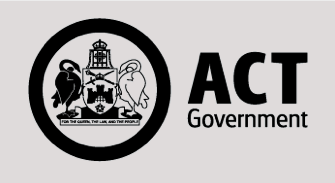 An inappropriate decision to prosecute may mean that an innocent person suffers unnecessary distress and embarrassment. Even a person who is technically guilty may suffer undue hardship if, for example, he or she has merely committed an inadvertent breach of the law in some minor respect. On the other hand, an inappropriate decision not to prosecute may mean that the guilty go free and the community is denied the protection to which it is entitled. It must never be forgotten that the criminal law reflects the community’s pursuit of justice and the decision to prosecute must be taken in that context.
An inappropriate decision to prosecute may mean that an innocent person suffers unnecessary distress and embarrassment. Even a person who is technically guilty may suffer undue hardship if, for example, he or she has merely committed an inadvertent breach of the law in some minor respect. On the other hand, an inappropriate decision not to prosecute may mean that the guilty go free and the community is denied the protection to which it is entitled. It must never be forgotten that the criminal law reflects the community’s pursuit of justice and the decision to prosecute must be taken in that context.
2.2 Whilst a number of general principles may be articulated it is not possible to reduce such an important discretion to a mere formula. Plainly, the demands of fairness and consistency will be important considerations but the interests of the victim, the alleged offender and the general public must all be taken into account.
2.3 The initial consideration will be the adequacy of the evidence. A prosecution should not be instituted or continued unless there is reliable evidence, duly admissible in a court of law, that a criminal offence has been committed by the person accused. This consideration is not confined to a technical appraisal of whether the evidence is sufficient to constitute a prima facie case. The evidence must provide reasonable prospects of a conviction. If it is not of sufficient strength any prosecution would be unfair to the accused and a waste of public funds.
2.4 Any assessment of the prospects of conviction must involve an analysis of many factors, including the following:
- Are the witnesses available to give evidence?
- Do they appear to be honest and reliable?
- Do any appear to be exaggerating, defective in memory, either hostile or friendly towards the defendant or otherwise unreliable?
- Do any have a motive for being less than candid?
- Are there any matters, which may properly form the basis for an attack upon the credibility of a witness?
- What impressions are the witnesses likely to make in court?How is each likely to cope with cross-examination?
- If there is any conflict between witnesses-Does it go beyond what might be expected?Does it give rise to any suspicion that one or both versions may have been concocted?Conversely are the versions so identical that collusion should be suspected?
- Where essential witnesses are children, is it likely that they will be able to give sworn evidence?
- Are there any grounds for believing the relevant evidence may be excluded as legally inadmissible or as a result of some recognised judicial discretion?
- Where the case is largely dependent upon admissions made by the defendant, are there grounds for suspecting that they may be unreliable given the surrounding circumstances including his or her age, intelligence and apparent understanding?
- If identity is likely to be an issue is the evidence that it was the defendant who committed the offence sufficiently cogent and reliable?
| 68 ¦ | DIRECTOR OF PUBLIC PROSECUTIONS ANNUAL REPORT 2012-2013 | |||
| ← Previous Page | Next Page → | |||

